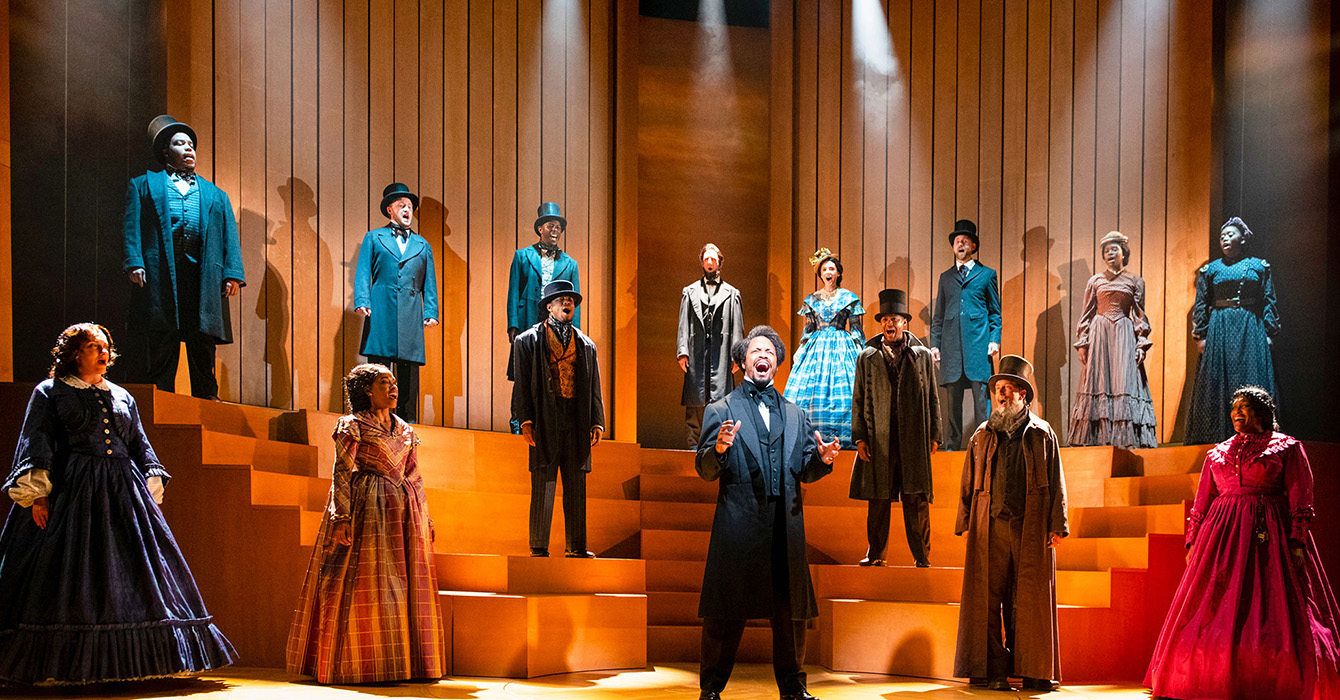When I asked Stanley Hauerwas recently for advice on how to write about vibrant institutions, his response surprised me. “How broadly do you want to define an ‘institution’?” he asked. “Can you include music? Just in terms of things we can’t live without, that people have to get organized to make happen . . .”.
Catching himself, he paused, then quickly added, “Of course, musicians can rarely get themselves organized.”
He must not have known Charles Pettee, longtime mandolin player for The Shady Grove Band and leader and primary writer for Folkpsalm. The latter band has just released its third CD, “The Way of Manna,” a followup to two previous disks of bluegrass renditions of the Psalms. Pettee raised $10,000 from local fans to record and produce the CD. “A friend pointed out we were living in a manna economy,” he said. Like the Israelites, Pettee and Folkpsalm had to trust God every day that more manna would be available on the ground in the morning. They raised the money through benefit concerts in local churches and lots of small gifts.
I met with Charles recently to learn about the parallels between leadership in music and in other arenas. But first I learned what a small world folk, bluegrass and old-time music really is. I mentioned the Carolina Chocolate Drops and discovered that he not only knew the members but had performed with them. “We did a history of the banjo together,” he said. Sounds like an organized institution of some sort.
How does Pettee lead his band on stage? With nothing more than a glance. Actually, by the time Folkpsalm performs the musicians have little need for stage direction. Everything has already been worked out in rehearsal. But just in case someone needs shepherding during a performance, Pettee showed me the “glance” he uses: His bright blue eyes bore down on me through his shock of graying blond hair. I straightened up in my chair.
But Pettee rarely has to unleash that look because he believes in getting the right people in the band (to riff off of Jim Collins’ “get the right people on the bus” mantra). As band leader, he often becomes the music’s greatest fan. “Sometimes I want to tell the audience, ‘Are you listening? This is great!’ These musicians are among the top 2 percent I’ve ever heard.” The leader often becomes the fan and herald.
Surprisingly, not everyone in the band is religious: “We’re about half and half.” Nevertheless they pray together before performing: “It’s my band, I’m leading it my way.” One member who resists any religious commitment often hugs Pettee, in tears, after performances. “There’s something going on there,” he said. Indeed it’s hard to imagine how anyone could sing the songs of David so joyfully and sorrowfully without their heart being moved. Another lesson here: A leader can insist that the whole be oriented Godward without necessarily imposing something intrusive on the un- or otherwise-committed.
Pettee knows what it’s like to love bluegrass and not yet love God. “All I sang before was drunk gospel,” that musical form that breaks out at the end of a raucous evening, when the band turns to “Amazing Grace.” Years ago, however, a friend died suddenly, and Pettee heard a voice, plain as day: “Sing Amazing Grace at his funeral,” it said.
“Good thing it chose that one,” Pettee said. “It was the only religious song I knew.”
So Pettee called University Baptist Church in Chapel Hill, offered to sing and they accepted. He was nervous. To him, all Christians were like Jerry Falwell. He had emotional defenses built up against the religious right, but not for a community of faith rallying around a grieving family in its devastation.
“My wife and I were undone,” he said. Now they are members at University. “I don’t believe in shopping around,” he said. “That’s where it happened.”
Pettee’s greatest act of leadership, however, may be leading his fans to sing the songs of David, “Set to bluegrass, just like the ancient Hebrews intended,” he jokes. The psalms were a boon to him as a young believer who knew no religious music. “There it is, a songbook from God, and we don’t know what the music was.” God gave him songs when he didn’t have any, which he now leads us in. Now that’s Christian leadership: inseparable from a vibrant institution like a fledgling band, taking direction from God, leading others to sing.
Jason Byassee is an executive director of Leadership Education at Duke Divinity.







